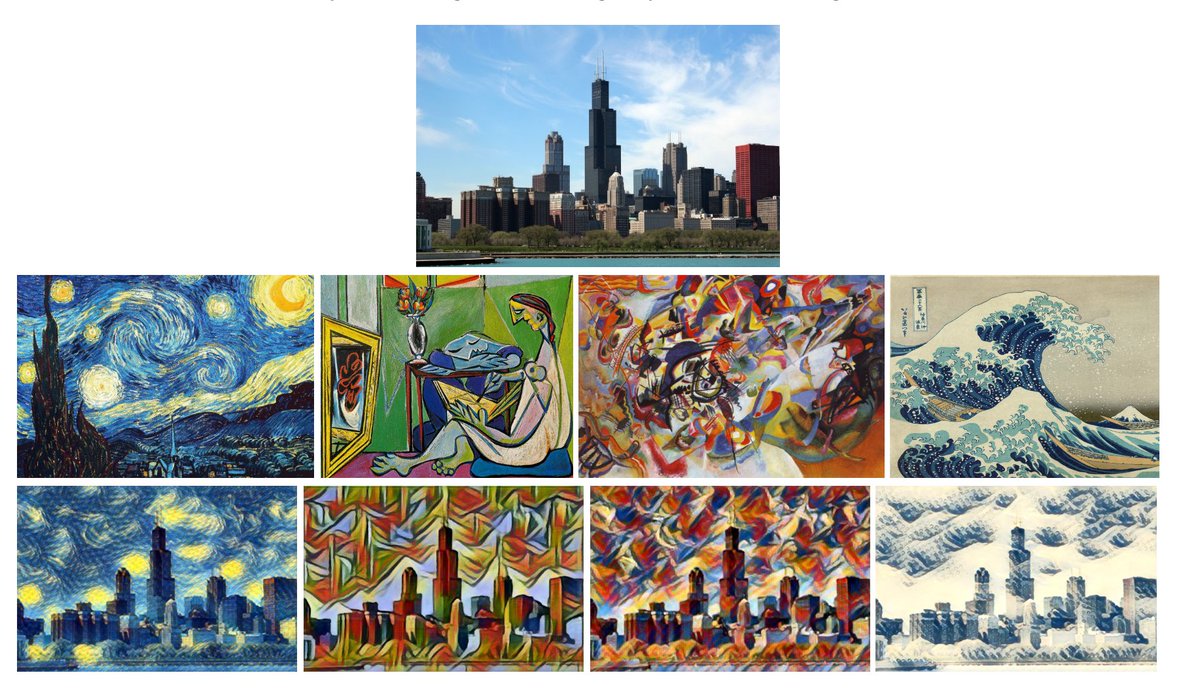Running time complexity of fast-neural style algorithm

In this post we compute the running time complexity of the algorithm proposed in the paper Perceptual Losses for Real-Time Style Transfer. It will be helpful to decide on the required hardware or to estimate the number of days you will require to run your experiments.
Quick calculation
The total number of computations for one forward pass of this algorithm is 20607 million. (Refer below for detailed computation)
Hence, if your computer is running on 2.2GHz porcessor. Then, total time required to finish these operations can be calculated as :
Time required for forward pass = 20607 / 2200 = 9.36sec
Time required for one iteration/epoch = 2 * 9.36 = 18.72sec
Say, we are running for 40,000 iterations then time = 40,000 * 9.36 = 748800sec = 208hrs = 8.66 days approx.
Basic Formulae
Size of activation map
oW = floor((padW * 2 + iW - kW) / dW) + 1
where oW is the output width, padW is the horizontal padding, iW is the input width, kW is the kernel width and dW is the horizontal stride. In all the convolution layers where padding isn’t explicitly specified, it is always considered a padding of floor(kW / 2). The same holds for the vertical dimension, with W replaced by H.
Number of operations
No.of operations = activation size x filter size x no.of filters
General
- 1 Giga = 1 billion
- 1 Giga(billion) = 1000 million
- 1 million = thousand thosands = 1000 * 1000
Architecture along with computations
